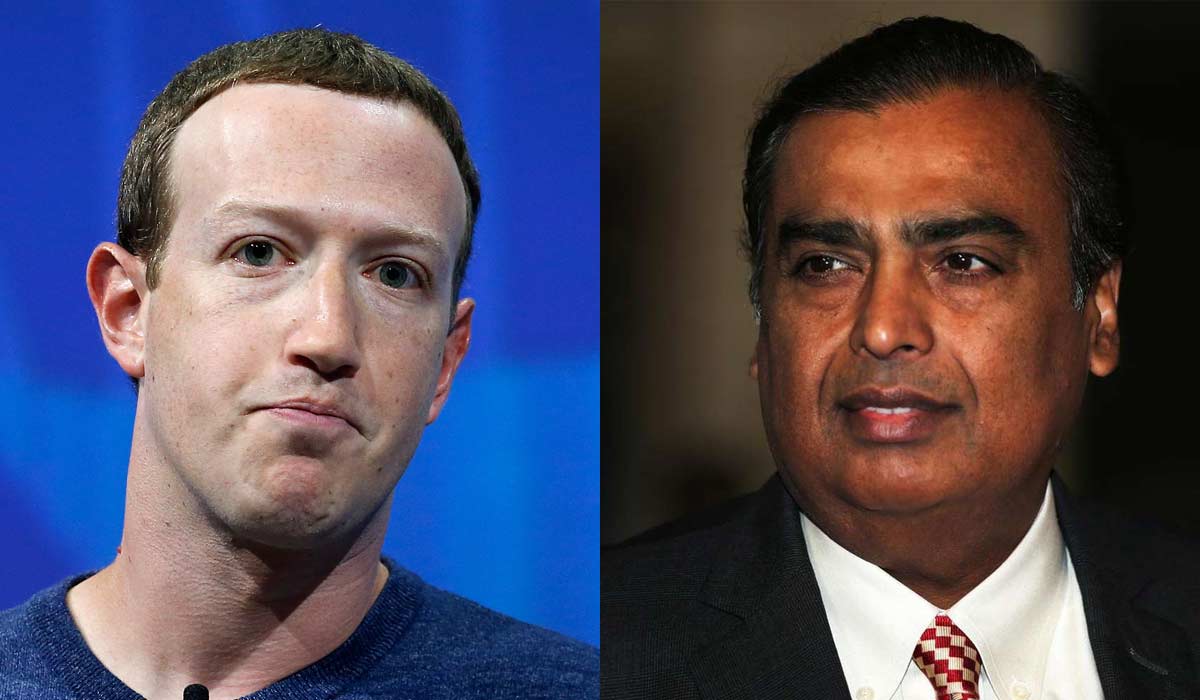With its half-billion internet users, India is an alluring market for the world’s largest technology companies, including Amazon, Apple, Microsoft and Alphabet’s Google.
In India, Facebook has about 250 million users, while its messaging app WhatsApp has over 400 million.
As the largest social media on the internet, a way to conquer most of India's fast-paced communication, is by acquiring 9.99% stake in Jio Platforms.
Jio is India's telecommunication giant owned by India’s richest man, Mukesh Ambani. Jio, which is a subsidiary of Reliance Industries, has conquered much of India's telecommunication market using its aggressively low prices, as well as using its attempt to leverage its platform for retail.
According to Facebook's Newsroom announcement, Facebook is paying $5.7 billion to become Jio's largest minority shareholder. With it, the social giant is granted a seat on Jio’s board, and is exploring ways to integrate Jio’s customers with Facebook’s platforms, including WhatsApp.
Given WhatsApp's influence in India, Facebook is acquiring Jio's shares should help it penetrate deeper into the market.

Mukesh Ambani started his interest in business when he was helping his father, Dhirubhai Ambani, run their family business.
The Reliance Industries Limited at the time had already expanded so that it also dealt in refining and petrochemicals. The business also included products and services in retail and telecommunications industries.
But it was Jio that quickly made a name for itself, since it earned the top-five- spot in the country's telecommunication services since its public launch on 5 September 2016.
It began offering 4G service at the end of 2015 and, through a combination of low prices and acquiring the only company with spectrum licenses across the country, Jio quickly grew. Facebook says that “in less than four years, Jio has brought more than 388 million people online,” and with that, it controls more than half of India’s telecomminication market.
But Jio’s dominance was described as effective only to the fact that the telecommunication industry in India is fragmented. Jio also racked up debt, which was said to be around ₹40,000 crore (more than $5 billion).
Jio however, isn't only a mobile provider, as it also offers fiber to homes, municipal Wi-Fi, as well as a big data, cloud computing and AI division.
By acquiring a bit of Jio, Facebook can make Jio help its user base grow, and to help it center its platform as the place for people to communicate and conduct business.
According to Facebook founder and CEO Mark Zuckerberg:
The partnership between Facebook and Jio Platforms has been a much-awaited deal.
The deal, which gives Jio an enterprise value of around $66 billion, will help its parent Reliance Industries cut its hefty debt. With Facebook and the money given, Jio plans to end all of its debt by March 2021.
Jio has 388 million subscribers in India, while Facebook’s WhatsApp has 400 million users, making it the platform’s biggest market. The collaboration will create “new ways for people and businesses to operate more effectively in the growing digital economy,” Facebook’s Chief Revenue Officer David Fischer and Ajit Mohan, Facebook’s vice president and managing director for India, said in a statement.
This deal is one of the largest acquisition made by Facebook, after its acquisition of WhatsApp in 2014.
With the deal, share price for Reliance Industries jumped as much as 12% in the trading market in Mumbai, compared with the 2.3% gain for the benchmark S&P BSE Sensex index.
As the chairman of Reliance Industries, Ambani's net worth rose about $4.7 billion to $49.3 billion. This makes Ambani about $3.2 billion richer than China’s Jack Ma, the founder of Alibaba.
